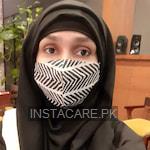Acrodermatitis - Symptoms, Risk factors and Treatment
Last Updated On Thursday, February 19, 2026
Acrodermatitis in Urdu
ایکروڈرمیٹائٹس زنک کی کمی سے منسلک ایک نایاب عارضہ ہے جو خاص طور پر 3 ماہ سے 15 سال کی عمر کے بچوں کو متاثر کرتا ہے، اور پھولے ہوئے پیٹ، سوجن لمف نوڈس اور بخار کے ساتھ جلد پر سرخ یا جامنی رنگ کے پاپولر خارش والے چھالوں کا سبب بنتا ہے۔ یہ بیماری بذات خود متعدی نہیں ہے بلکہ اس کا سبب بننے والا وائرس ہے۔ ایک متاثرہ شخص مریض کے ساتھ قریبی ماحول میں رہنے والے دوسروں کو منتقل کر سکتا ہے۔ زیادہ تر عام طور پر، یہ چشموں اور گرمیوں میں ہوتا ہے اور عام طور پر چار سے آٹھ ہفتوں تک رہتا ہے۔ یہ چار ماہ تک بھی چل سکتا ہے لیکن عام طور پر علاج کی ضرورت کے بغیر خود ہی حل ہوجاتا ہے۔
Acrodermatitis in English
Acrodermatitis is a rare disorder associated with zinc deficiency that particularly affects children aged between 3 months to 15 years, therefore, its complete name is “papular acrodermatitis of childhood.” It causes red or purple papular itchy blisters on the skin along with a bloated abdomen, swollen lymph nodes, and fever.
Acrodermatitis is not contagious, but the virus that causes it is. An infected person can transmit to others living in a close environment with the patient. Most commonly, it occurs in springs and summers and typically lasts for four to eight weeks. It can also last for as long as four months but usually resolves on its own, without the need for treatment.
Symptoms
In most cases, over three to four days, red spots start to develop on the skin of the child. They can develop anywhere in the body. But most commonly, they develop on the buttocks, arms, and thighs. By the progression of the disease, the spots tend to become purple because the capillaries start to leak blood. Moreover, the spots also move towards the face and turn into an itchy blister filled with fluid.
It may also cause tenderness and swelling of the abdomen and lymph nodes which can last for two to three months. A copper-colored patch can indicate acrodermatitis that is flat and firm in touch.
If acrodermatitis occurs due to hepatitis B, it also causes yellowing of skin and eyes- a symptom of jaundice.
Causes
The exact cause of acrodermatitis is unknown. However, experts believe that it occurs due to a virus called Epstein Bar Virus- a virus that belongs to the family of herpes virus and spreads through bodily fluids, especially saliva. Acrodermatitis most commonly occurs due to Epstein Bar Virus in children, but it can occur due to other infections as well like;
- HIV
- hepatitis A, B, and C
- cytomegalovirus
- enterovirus
- rotavirus
- rubella (viral infection that causes a rash)
- coxsackievirus
- parainfluenza viruses
- respiratory syncytial virus (RSV)
Very rarely, the vaccines of the following infections can also cause acrodermatitis;
- hepatitis A
- diphtheria
- smallpox
- poliovirus
- chickenpox
- pertussis
- Influenza
Treatment
Acrodermatitis itself does not need treatment. But the healthcare providers will focus on treating the underlying cause. Its symptoms may resolve in four to eight weeks. In the meanwhile, the doctors may prescribe corticosteroid topical creams and oral antihistamines to relieve itch and discomfort.
Conclusion
Acrodermatitis is a rare disorder associated with zinc deficiency that particularly affects children aged between 3 months to 15 years, and causes red or purple papular itchy blisters on the skin along with bloated abdomen, swollen lymph nodes, and fever. The disease itself is not contagious, but the virus that causes it is. An infected person can transmit to others living in a close environment with the patient. Most commonly, it occurs in springs and summers and typically lasts for four to eight weeks. It can also last for as long as four months but usually resolves on its own, without the need for treatment.








